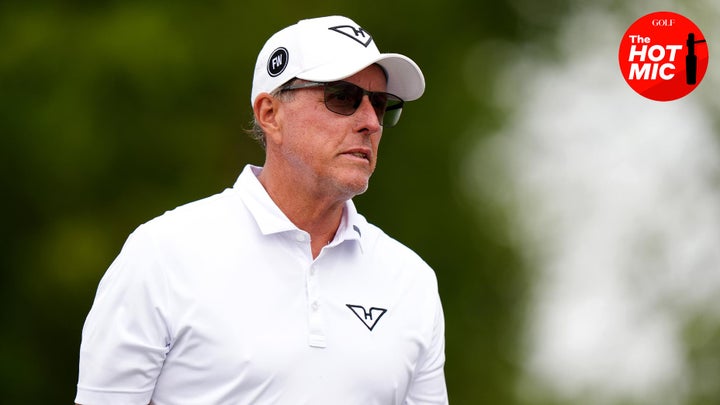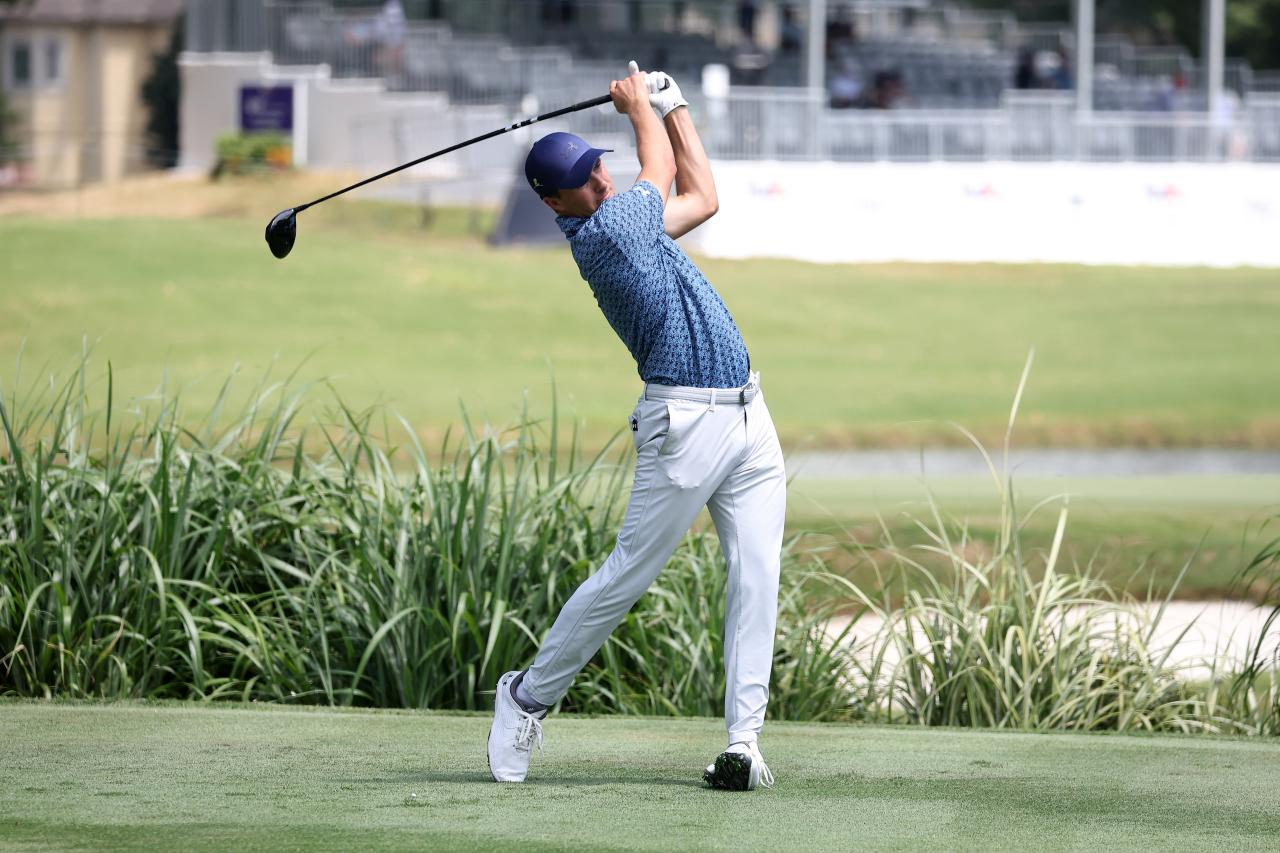After two short years and a few too many bleak ratings reports, LIV Golf and the CW are preparing to change the channel.
That’s the latest according to LIV star Phil Mickelson, who let slip during a press conference previewing the league’s championship in Chicago that the league has its sights set in a new broadcast direction for 2025 and beyond.
“Well, television and viewership for sports, especially golf, is changing. So the old-school media and way that we’ve done it, which is be on a network and so forth, is not the way of the future. It’s going to be more digital, more streaming,” Mickelson said on Wednesday, speaking about the league’s current agreement with network TV partner the CW. “Our new partner, because our new partner, whoever that is after this year, I think is going to be more focused and centric there because of the opportunities that will open up. But I am not part of those television contracts.”
Sources at LIV confirmed the league is “exploring partnership opportunities” with current and new broadcast partners in the U.S. and abroad, as it has done in each of the last several offseasons.
Mickelson, though, indicated the league could look to move away from linear TV rights altogether. That would be, to put it lightly, a radical shift in the modern sports media economy.
“I know they’re in the middle of negotiating viewership relationships and partnerships going for next year,” Mickelson said. “I’m not a part of that, so I don’t really have any great insight for you. I just know that the old-school model is not where LIV Golf is headed. It’s not where the future is going, and we don’t want to get stuck in a rut.”
THE BASICS
LIV owns the rights to its broadcasts. It can sell those rights to whomever it chooses, and typically it will seek a “rights fee” in return. A rights fee can range from a few million to a few billion dollars per year, depending upon the size and reliability of your audience, the size and interest of your advertisers, and your total number of hours on the air.
LIV is currently partnered with the CW, though that deal initially included a revenue share instead of a rights fee. It is expected to expire at the end of the 2024 season. Until Mickelson’s comments earlier this week, nobody from LIV had commented publicly about the league’s broadcast rights heading into the future.
THE BACKSTORY
LIV and the CW inked a media rights agreement in early 2023 after a lengthy negotiation period that failed to yield the league a sports media partner with a track record in sports. At the time, the agreement was seen as a bridge deal for both sides: a chance for LIV to show off its ad-generating chops after a season of broadcasting on YouTube to the “big fish” of sports TV, and an opportunity for a transitioning network like the CW to enter the sports space with a big splash. The deal was widely reported as a two-year tryout, but it’s unknown if the contract included escalators in term or value based on the league’s performance, as some other sports rights agreements do.
The two seasons that followed were trying for both LIV and the network, a period highlighted by ghastly TV ratings and curious squabbles with the CW’s programming department over the network’s decision to pivot away from LIV telecasts. Editorially, LIV’s telecasts have looked just fine (the league controls TV production), but both sides’ perceived weaknesses in establishing and retaining a sports audience have come to fruition. Recent telecasts have been watched by fewer than 200,000 average viewers, according to Nielsen, more in line with cable news than broadcast sports television.



